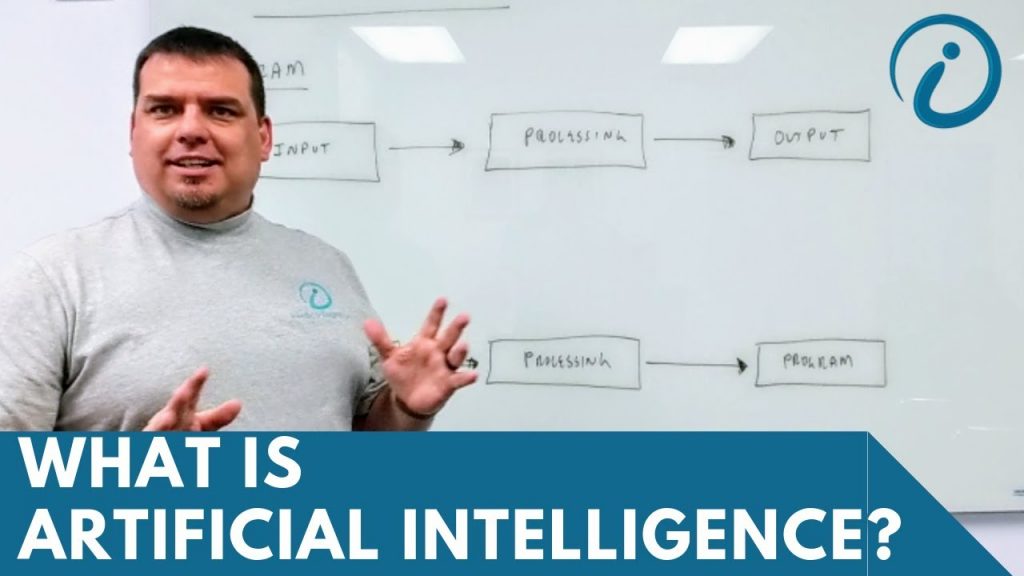Are you curious about how Artificial Intelligence (AI) is revolutionizing industrial control systems? In this informative YouTube video, Walker Reynolds provides a comprehensive explanation of AI in the context of industrial automation. So, let's dive in and explore the fascinating world of AI and its impact on the industrial automation sector.
What is Artificial Intelligence (AI) in Industrial Control Systems?
Artificial Intelligence, commonly known as AI, refers to the simulation of human intelligence in machines that are programmed to think and learn like humans. In the realm of industrial control systems, AI plays a pivotal role in enhancing automation processes and optimizing efficiency.
Industrial automation, on the other hand, involves the use of various control systems and technologies to automate industrial tasks and operations. From manufacturing plants to assembly lines, automation streamlines processes, reduces human intervention, and enhances productivity.
The Fusion of AI and Industrial Automation
The integration of AI and industrial automation opens up a world of possibilities. By leveraging AI technologies, industrial control systems can analyze vast amounts of data, make intelligent decisions, and adapt to changing conditions in real-time.
One of the most significant applications of AI in industrial automation is predictive maintenance. By continuously monitoring equipment and systems, AI algorithms can predict potential failures and recommend proactive maintenance actions. This not only minimizes downtime but also reduces maintenance costs.
AI-powered robots are another game-changer in the industrial automation landscape. These advanced robots can perform complex tasks with precision and accuracy, improving production efficiency and ensuring consistent quality.
AI also enables intelligent energy management in industrial settings. By analyzing energy consumption patterns, AI algorithms can optimize energy usage, reduce wastage, and contribute to a more sustainable approach to manufacturing.
The Benefits and Challenges of AI in Industrial Control Systems
The benefits of incorporating AI in industrial control systems are manifold. Improved efficiency, increased productivity, enhanced safety, and reduced costs are just a few of the advantages that AI brings to the table.
However, implementing AI in industrial automation is not without its challenges. The complexity of integrating AI algorithms with existing control systems, the need for continuous monitoring and maintenance, and the potential for job displacement are some of the hurdles that need to be addressed.
Looking Ahead: The Future of AI in Industrial Automation
As technology continues to advance, the future of AI in industrial automation looks promising. From autonomous vehicles to smart factories, AI-driven industrial control systems will play a pivotal role in shaping the future of manufacturing.
The potential for AI to revolutionize industrial automation is immense. With continued research and development, we can expect even more sophisticated AI algorithms that can handle complex tasks and make intelligent decisions in real-time.
In conclusion, AI is transforming the industrial control systems landscape, revolutionizing the way we automate industrial processes. Embracing AI in industrial automation brings numerous benefits and opens up new possibilities for increased efficiency, productivity, and sustainability. As we move forward, it is crucial to stay updated with the latest advancements in AI to harness its full potential in the realm of industrial automation.
Thanks for watching this informative video on AI in industrial control systems. If you found this content valuable, make sure to subscribe to our channel for more exciting updates on industrial automation.
Check the coil packing solution with a leading manufacturer for a professional solution here:
(Note: Please insert relevant and SEO-friendly hyperlink to the leading manufacturer's website) Industrial Robot
Understanding AI for Industrial Automation: Revolutionizing Efficiency and Productivity
